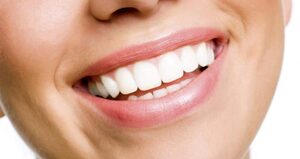How Are Gum Diseases Linked to Other Health Problems?
Publicado por Jeffrey Linda
Cuerpo
Periodontitis, also called periodontal disease or gum disease, begins with bacterial growth in your mouth due to unhealthy mouth keeping and less cleaning. It may not end, if not properly treated, with the loss of teeth due to the destruction of the tissue surrounding your teeth. If you have any queries about Gum Disease Treatment, you can book a dentist appointment near me.
What's the Difference Between Gingivitis and Periodontitis?
Gingivitis usually happens before periodontitis(gum disease). But not all gums inflammation leads to periodontitis. Most people are suffering from gingivitis at some point in their lives, and it's a mild symptom, but you can't leave it untreated and ignored. It may turn into more significant problems. You can restore and prevent it by simply brushing and flossing your teeth regularly with a dental routine check-up from your nearest dentist.
In the early stages of gingivitis, bacteria sleep in plaque and cause gums to become inflammable and easily bleed during tooth brushing. Although the gums are diseased, the teeth don't lose in this stage.
When you forget to brush and floss your teeth or rinse your mouth, a thin film of bacteria and food particles builds up around the teeth. This reacts with your teeth and causes teeth decay. After 2-3 days, plaque converts into a hard layer, tartar; it forms along the gum line and irritates your gums, causing gingivitis. So if you are suffering from any such problem, you can visit Dental Bridges Near Me.
What Causes Gum Disease?
Plaque is the leading cause of gum diseases. However, other factors may contribute to periodontal diseases, such as:
- Hormonal changes: Those may happen during pregnancy, puberty, menopause, and monthly menstruation, making gums more sensitive, it makes easier for gingivitis to develop.
- Illnesses or long-term diseases may also affect the condition of your gums. This includes diseases such as HIV or cancer. They interfere with the immune system and hence result in gingivitis developing.
- Over medications can affect oral health because some lessen saliva flow, potentially saving your gums and teeth. There are Some drugs, such as the anticonvulsant medication Dilantin and the anti-angina medicine Procardia and Adalat.
- Bad habits such as smoking and drinking make it harder for gum tissue to repair itself.
- Poor oral habits such as not brushing and flossing daily make it easier for gingivitis to develop.
- A family history of dental disease can contribute to the development of gingivitis.
What Are the Symptoms of Gum Disease?
Gum disease may cause unbearable pain and sometimes painless without any sign, even in the final stages of the disease. Although the signs of periodontal diseases are subtle, this condition is not warningless. Few symptoms may point out some form of the disease. These are the symptoms of gum disease:
- Gums bleeding during and after tooth brushing
- Red, swollen gums(Healthy gums should be pink and firm.)
- Persistent taste or bad breath in the mouth
- Receding gums and tartar
- Formation of small pockets between teeth and gums
- Loose or shifting of the teeth
In case if feel any such symptoms, you should visit your dentist office open near me for Gingivitis Treatment.












Comentarios